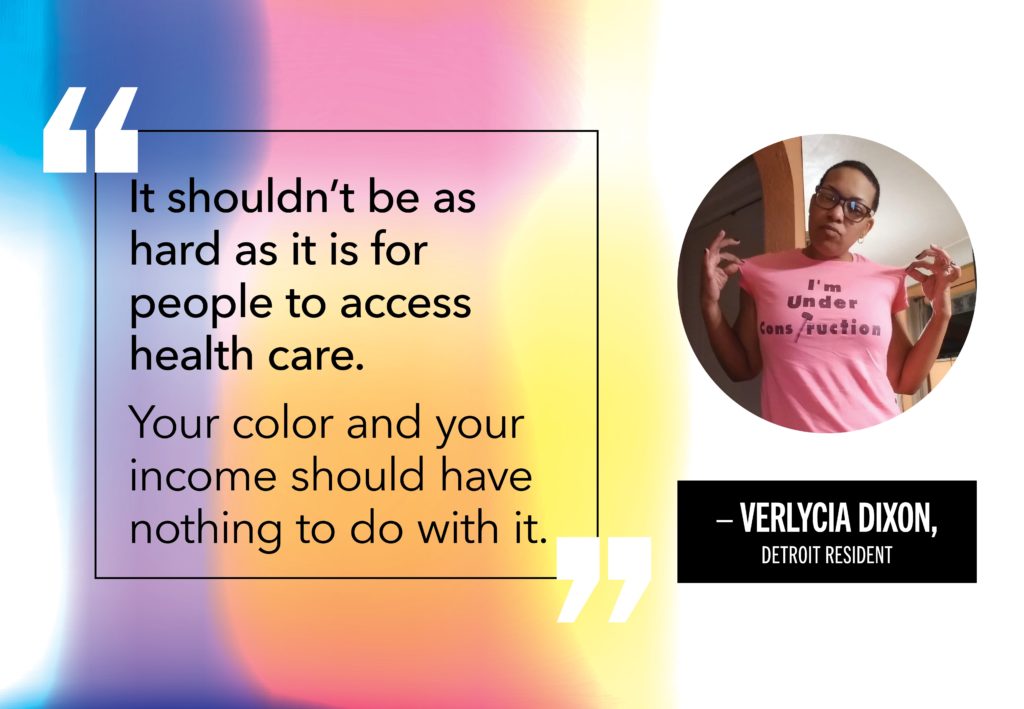Equity Challenge Reflections: Verlycia Dixon
Published on June 18, 2021 in Diversity, Equity and Inclusion

Verlycia Dixon’s job is to help others, but for a while, she had given up on helping herself.
The 43-year-old Detroit resident works as a community health worker, assisting cancer patients in overcoming barriers to care. Yet, when it came to own her own dental health, Verlycia, who is Black, hit a wall.
She needed braces for longer than she can remember. Underinsured and unable to pay out of pocket for a CT scan, which is used to detect extra or impacted teeth, she was turned away by multiple dentists.
“It was frustrating. Very frustrating,” she said. “When the last place said no unless I could pay for the scan, I just gave up.”
Black women are disproportionately affected by barriers and disparities when navigating care in a system plagued by structural and systemic racism. The previous dentists Verlycia saw were white, which led her — many other Black women in similar situations — to seek Black doctors for an increased sense of security and understanding.
Eventually, Verlycia found a Black dentist who specialized in treating low-income patients. He took a special interest in getting her the smile she always wanted. With his help, she was able to get her insurance company to pay for the scan and walked out of the office with braces.
“I was so happy. I didn’t care about the pain. I didn’t care about nothing. I finally had my braces,” she said.
Verlycia’s story has a happy ending. She wants people to know that many other stories do not end so happily.
She believes the 21-Day Equity Challenge will be a wake-up call for people to fix the racial wealth gap and inequity in health care.
“It shouldn’t be as hard as it is for people at access care. Your color and your income should have nothing to do with it,” she said.
Verlycia wants to bridge cultural divides and eliminate discrimination.
“You can’t allow anybody to make you feel bad about who you are,” she said. “We don’t always have to agree, we just have to understand so that we can treat each other as human beings that mostly go through the same experiences.”